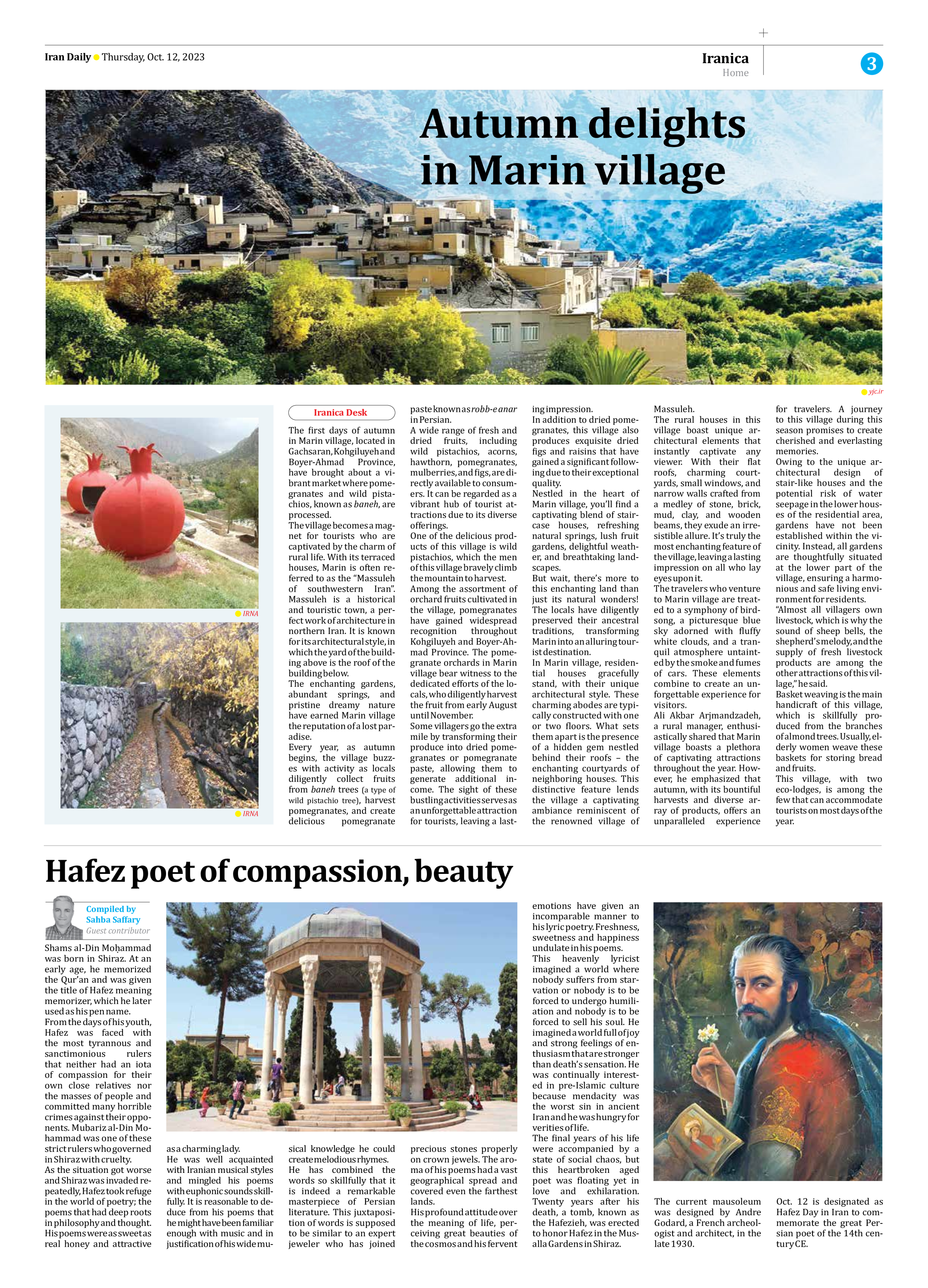
Hafez poet of compassion, beauty
Compiled by Sahba Saffary
Guest contributor
Shams al-Din Moḥammad was born in Shiraz. At an early age, he memorized the Qur’an and was given the title of Hafez meaning memorizer, which he later used as his pen name.
From the days of his youth, Hafez was faced with the most tyrannous and sanctimonious rulers that neither had an iota of compassion for their own close relatives nor the masses of people and committed many horrible crimes against their opponents. Mubariz al-Din Mohammad was one of these strict rulers who governed in Shiraz with cruelty.
As the situation got worse and Shiraz was invaded repeatedly, Hafez took refuge in the world of poetry; the poems that had deep roots in philosophy and thought. His poems were as sweet as real honey and attractive as a charming lady.
He was well acquainted with Iranian musical styles and mingled his poems with euphonic sounds skillfully. It is reasonable to deduce from his poems that he might have been familiar enough with music and in justification of his wide musical knowledge he could create melodious rhymes.
He has combined the words so skillfully that it is indeed a remarkable masterpiece of Persian literature. This juxtaposition of words is supposed to be similar to an expert jeweler who has joined precious stones properly on crown jewels. The aroma of his poems had a vast geographical spread and covered even the farthest lands.
His profound attitude over the meaning of life, perceiving great beauties of the cosmos and his fervent emotions have given an incomparable manner to his lyric poetry. Freshness, sweetness and happiness undulate in his poems.
This heavenly lyricist imagined a world where nobody suffers from starvation or nobody is to be forced to undergo humiliation and nobody is to be forced to sell his soul. He imagined a world full of joy and strong feelings of enthusiasm that are stronger than death’s sensation. He was continually interested in pre-Islamic culture because mendacity was the worst sin in ancient Iran and he was hungry for verities of life.
The final years of his life were accompanied by a state of social chaos, but this heartbroken aged poet was floating yet in love and exhilaration. Twenty years after his death, a tomb, known as the Hafezieh, was erected to honor Hafez in the Musalla Gardens in Shiraz.
The current mausoleum was designed by Andre Godard, a French archeologist and architect, in the late 1930.
Oct. 12 is designated as Hafez Day in Iran to commemorate the great Persian poet of the 14th century CE.







